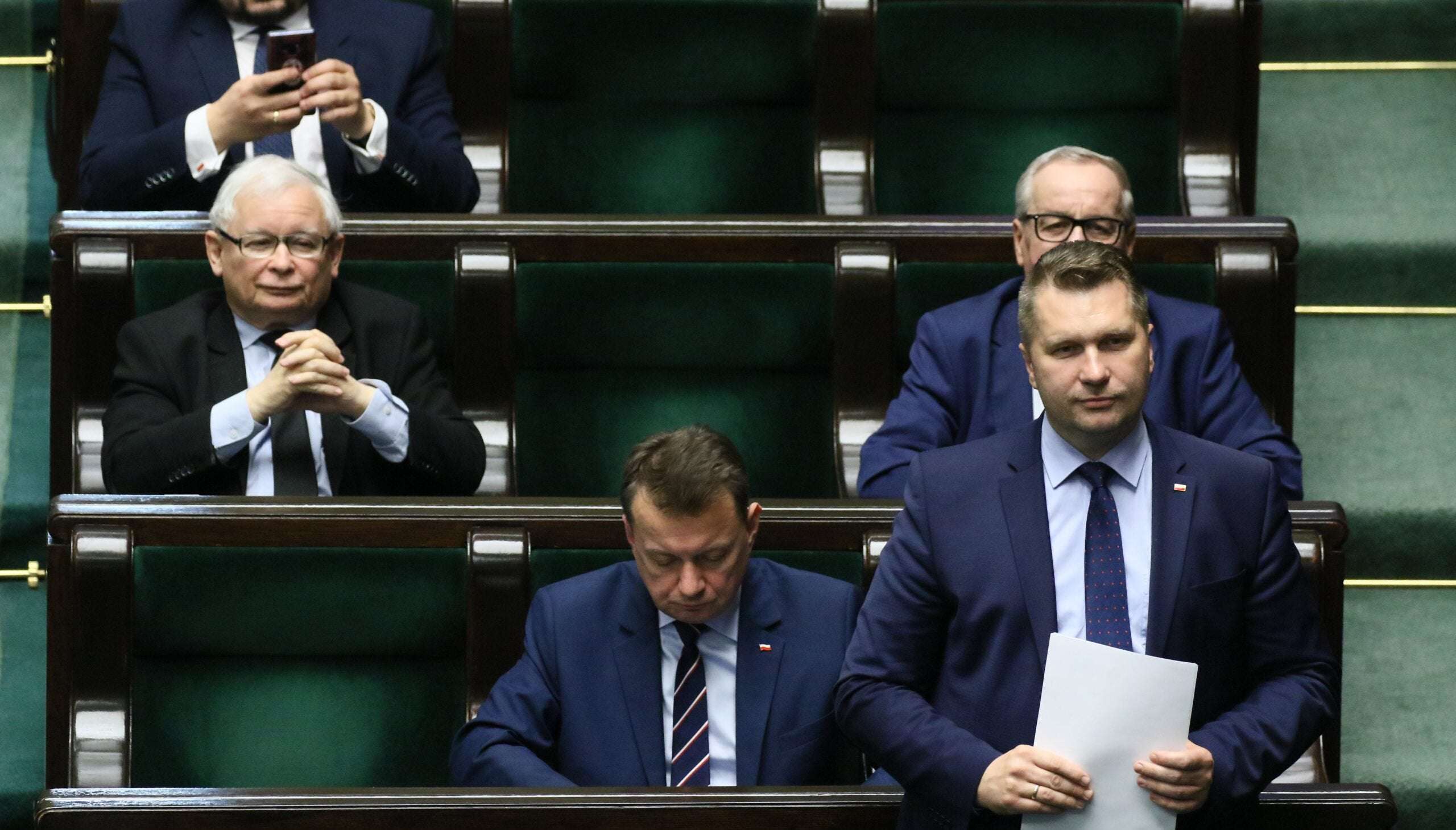Poland’s parliament has passed a bill that would centralise control over schools. Government-appointed education superintendents would be given additional powers over hiring and dismissing headteachers, as well as over preventing outside organisations from operating in schools.
The legislation has drawn criticism from NGOs, teachers’ unions and local authorities as well as the opposition. They say that the aim is to further the ruling national-conservative Law and Justice (PiS) party’s ideological influence over schools.
But the education minister argues that the new system is necessary to “protect children from moral corruption”.
The bill was approved by the Sejm, the lower house of parliament, yesterday by a majority of 227 to 214 votes. However, four MPs from Agreeement (Porozumienie), a former junior coalition partner in the PiS government, said that they voted in favour by mistake, and have filed an official explanation to the speaker.
The legislation now passes to the opposition-controlled Senate, which can reject it. But that can in turn be overturned by a majority in the Sejm, after which it would pass to President Andrzej Duda, a PiS ally, for a decision on whether to sign it into law.
The bill was first proposed by the education ministry last summer, and has come to be known as “Lex Czarnek”, in reference to the head of the ministry, Przemysław Czarnek.
Under the legislation, superintendents – appointed by the government in each of Poland’s 16 provinces – would be given greater powers in choosing and removing headteachers, at the expense of local authorities, which in many towns and cities are under opposition control.
They would also be allowed to block classes led by outside organisations, even if they are approved by all parents, notes TVN24. Critics are concerned that this power will prevent schools from hosting NGOs that are seen as being not in line with the government’s ideological goals, such as those promoting sex education.
Some school superintendents have already become political figures. The one in Małopolska province, Barbara Nowak, has offered extra credit to primary school pupils for taking part in a contest to produce songs, poems, films or other artistic content opposing abortion, contraception, IVF and euthanasia.
In 2020, the education superintendent in the Łódź province claimed that the “LGBT virus…is much more dangerous” than coronavirus. His words were defended by the then education minister.
Czarnek himself is known as an ultraconservative voice in the government. He has claimed that “LGBT ideology comes from the same roots as Nazism” and called for more Christian teaching in schools in order to “save Latin civilisation in Europe and the world”.
His ministry argues that the proposed changes are necessary because of “numerous notifications from superintendents, parents, teachers and teachers’ unions”. The majority of these, it says, relate to “unlawful actions, impacting the quality of teaching and the environment for students’ development”.
However, opposition politicians have labelled the legislation “a muzzle for schools”, comparing it to practices under the former communist regime.
A coalition of over 100 NGOs, unions and local politicians, called Free School (Wolna Szkoła), has repeatedly criticised the proposed changes and organised protests. This week they appealed to the prime minister to stop all work on the new legislation.
They also called for the education ministry to tackle what they see as more pressing problems in Poland’s education system, including lack of psychological support for young people, staff shortages and low pay for teachers.
“This bill takes away the influence of the people who shape schools every day: teachers, parents, students,” said Warsaw’s mayor, Rafał Trzaskowski, an opposition fiture. It it “another wave of centralisation…for the benefit of party nominees”.
The deputy leader of the largest Polish teachers’ union, the ZNP, warned that the law would “destroy the order that has worked well for years” in Poland. “It gave the school – and thus students, parents and teachers – peace, allowing for autonomy and normal development,” Krzysztof Baszczyński told Polskie Radio.
But, speaking in parliament this week, Czarnek said that the measures were necessary to prevent “schools from receiving content that morally corrupts children, because the state has a duty to protect children from moral corruption”, reports Onet.
Main image credit: Slawomir Kaminski / Agencja Gazeta

Anagnorsis on January 15th, 2022 at 13:39 UTC »
Whenever religion talks morality it’s never about moral or ethical discussion, they don’t care about honesty consent, golden rule.
It’s always about old people telling young people they don’t like the idea of them being sexually active.
SneezingRickshaw on January 15th, 2022 at 12:46 UTC »
When you look across history and across the world it’s very interesting how many times the pretext of protecting women and protecting children has been used to persecute a minority.
It’s a proven strategy. It shows how smart evil people can be.
lamabaronvonawesome on January 15th, 2022 at 11:10 UTC »
That sounds like religion rearing it’s ugly head.